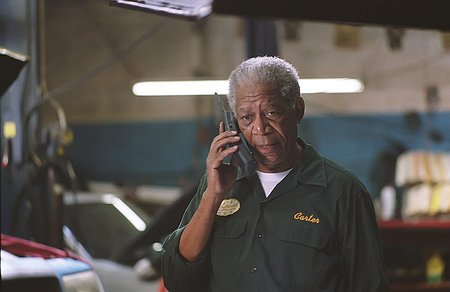I'm sharing a lesson to work on wish statementes for regrets. Throughout the following activities st's will be introduced to the concept of wishes, discover the grammar, practice and (hopefully) end up using it creatively.
To introduce the grammar point:
Match the wishes with
the characters (E= Edward C= Carter). Then watch the trailer and check whether
your predictions were right
|
|
|
Corporate billionaire Edward Cole is an ambitious and bitter man, who
has no friends and hasn’t spoken to his daughter in years.
|
Carter Chambers is a quiet working class mechanic who has been married
for forty-five years to his beloved wife and has three children. He is a very
responsible man with a strong sense of moral.
|
- ___ wishes he could make more money.
- ___ wishes that hospital rooms were shared.
- ___ wishes he were alone in the room.
- ___ wishes he didn’t know the day of his death.
- ___ wishes he hadn’t made a decision (two people - one room).
- ___ wishes he hadn’t shown the list to the other.
- ___ wishes he could spend some personal time.
- ___ wishes the other didn’t meddle in his life.
- ___ wishes he could pay for all the things they have experienced.
- ___ wishes the other could find the joy in his life.
Report your answers
using the following expressions:
I guess / I assume /
I bet / I suppose / I imagine….
From my point of view
/ to my mind / in my opinion…
To discover the grammar:
After they watch:
What’s the real situation in every sentence? E.g.: 1- He can’t make more money.
How do you form wish statements?
It would be advisable for the teacher to go over the first sentences on the whiteboard so as to make sure they understood how the grammar point works. They can complete the rest in pairs or individually.
After that, practice time!
Here's a presentation I used with my students.
This song could also be useful for this stage:
NB: The singer says "I wish I was..." many times along the song. It would be convenient to explain that while this form can occur in spoken grammar, it shouldn't be included in academic contexts.
To produce:
This is a game I developed some years ago. St's are divided into 3, 4, 5 groups (depending on the number of students you have in class). Then you play a song segment (you can use the ones I'm including below or choose your own segments).
After they listen to the first segment (in this case "Hit the road Jack"), group number 1 has to infer what the singer wishes. E.g.: She wishes she had never met Jack. Then, group number 2 has to come up with a new or different idea. E.g.: She wishes she were single. Then, number 3 and so on and so forth.
NB: The first idea should always be provided by a different group.
As a follow up:
Students could come up with their own bucket list using the grammar point seen. They could go to Glogster and generate a poster with their own wishes.

